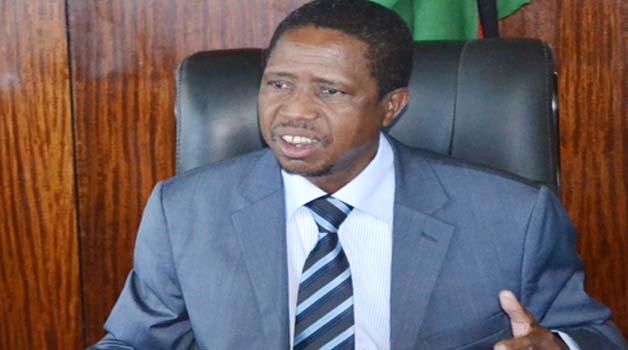By ANTHONY MULOWA in Addis Ababa, ETHIOPIA –
Zambia will use its position in the African Union (AU) Peace and Security Council to advance the objective of ensuring armed conflicts are eradicated by 2020, President Edgar Lungu has said.
Presenting a statement on Peace and Security at the 26th Ordinary Session of the Assembly of the AU Heads of State Governments here yesterday, Mr Lungu said Zambia recognised the decision that guns should be silenced by 2020.
“With your strong endorsement, as Zambia takes up membership of the Peace and Security Council, we will endeavour to advance this objective in line with our commitments of realising the vision of Africa we want by 2063,” he said.
Mr Lungu said the continued instability in many parts of Africa posed serious challenges to the continent.
He, however, noted that considerable advances had been achieved in resolving certain conflicts, but the continent continued to face challenges in peacekeeping and peace building mandates.
He said it was also encouraging to note that member states and the AU Commission remained committed to ensuring that greater attention was made to harness the role of women in all peace processes, including conflict prevention, mediation, post conflict reconstruction and peace building.
Mr Lungu said the focus on women in peace processes was cardinal as women and children continued to suffer the most during conflicts.
Mr Lungu said it was incumbent on Africa to address the challenges in a holistic manner and the continent must remain committed to resolving African conflicts through predominantly African solutions.
“In this respect, we need to strengthen the peace and security architecture of our continent as it is through this mechanism that Africa will ensure sustained focus in the pursuit of peace and security for economic and social development,” he said.
Mr Lungu also said the effects of climate change had introduced new dimensions to the threat to peace and security.
He said the spill-over effects of these destabilising factors had led to the increasing number of migrants, refugees and internally displaced persons.
Meanwhile, President Lungu also made another presentation during the African Peer Review Mechanism (APRM) discussion entitled “Revisiting the philosophy of the APRM.”
Mr Lungu gave practical examples of how the APRM helped Zambia achieve some targets.
He said as a result of the encouragement by the APRM mission to Zambia in 2011, the country had scored remarkable achievements and named some as the expansion of the social cash transfer.
He said at the time of the assessment, there were only 11 districts which were benefiting from the social cash transfer scheme, but after the recommendation to expand the programme, there were now 50 districts benefiting from the scheme.
Mr Lungu said the Government had already put in place strategies to expand the project to cater for all districts in the country.
On the feeder roads, the country’s review report identified poor feeder roads as a serious factor inhibiting socioeconomic development in rural areas of Zambia.
He said in response, the Government initiated the Link Zambia 800 programme in 2012 which opened access to markets for small scale businessmen and women while at the same time creating over 24,000 jobs.
Mr Lungu also said gaps on gender parity had also been addressed and that the achievements were an indication of more benefits yet to be derived from the APRM.
He said it was important that as the AU undertook the process to revisit the original thoughts of pioneers of the APRM, the continental body should not forget that having challenges in such an undertaking was normal.
Mr Lungu said challenges, should be viewed as potential stepping stones to the imminent better life that leaders needed to create for posterity.
He said Zambia also noted with concern the impact of illicit financial flows which were facilitating terrorist activities.







